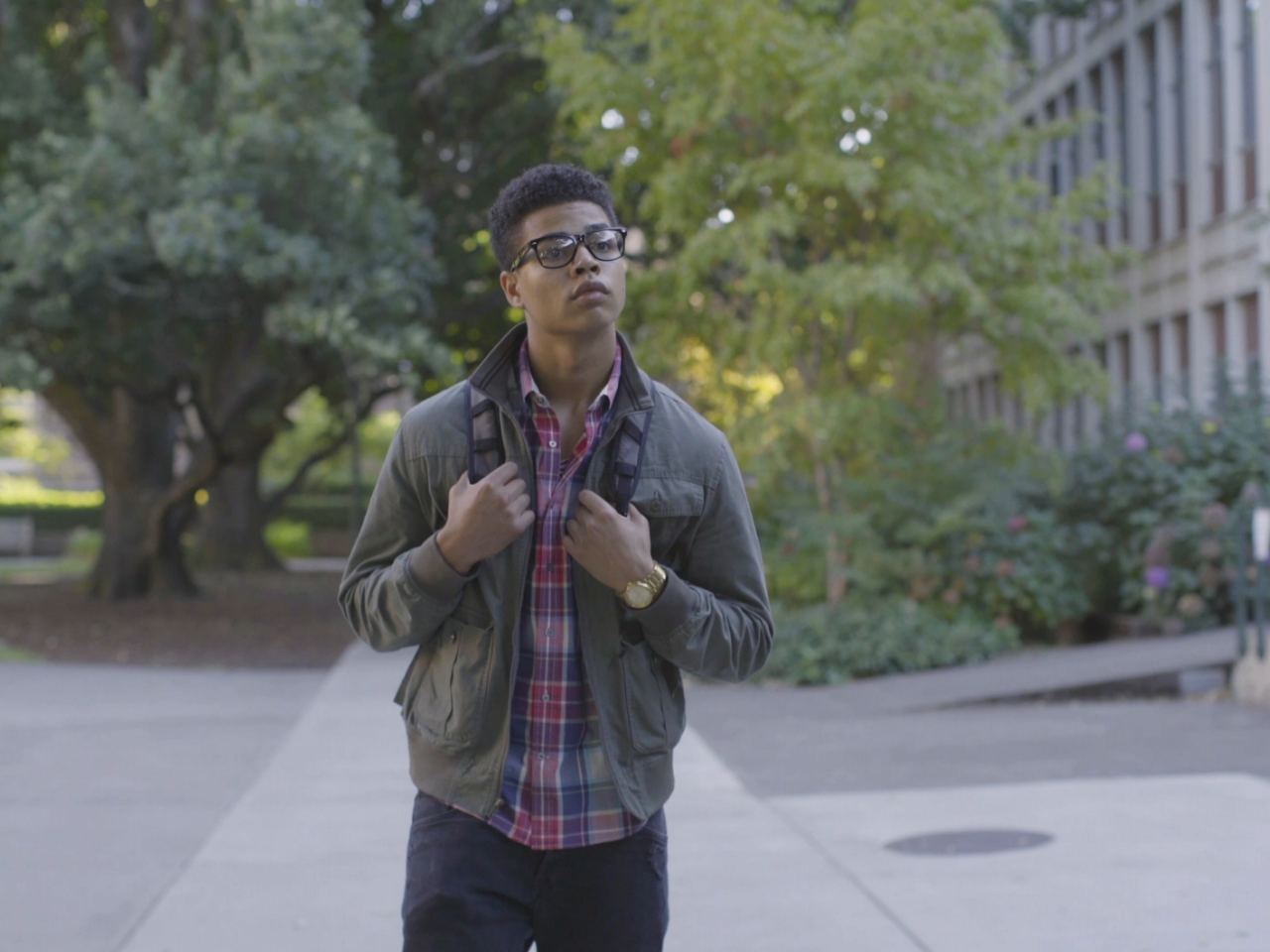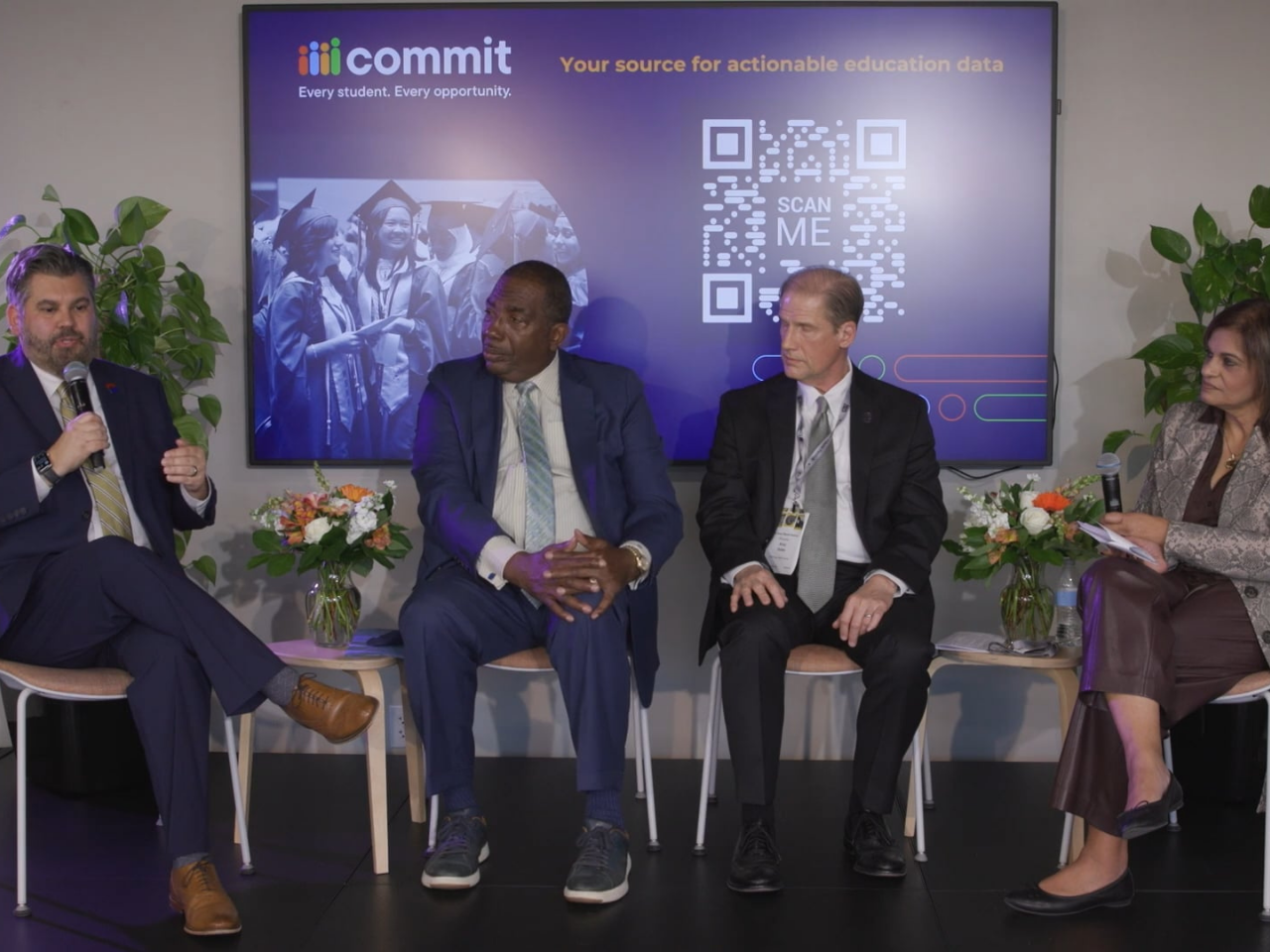Data Driven Decision Making in Education
.jpg)
.jpg)


For the past 12 months, a select commission of lawmakers, educators, and community members collaborated on a detailed set of recommendations for the Texas Legislature to overhaul Texas’ public school funding system, entitled "Funding for Impact: Equitable Funding for Students Who Need It the Most". Todd Williams, Commit's founder and CEO, served on the commission and submitted the letter below for inclusion in the final report.
Dear Chairman Brister,
I want to thank you for your willingness to serve as our chairman and I am incredibly appreciative of the time dedicated by my fellow Commission members as well as by staff members at both TEA and various legislative offices. Our final report would not have been possible without their expertise and hard work.
Let me start off by saying that as a product of public education myself, I am awed by its power to transform lives if funded adequately and implemented well. Given my own upbringing, it certainly transformed mine. My teachers inspired me, taught me a love of reading and math and how to write, and told me about doors that I could open when I didn’t even know that a door existed. Clearly, our public education system is the bedrock of both the American dream and our nation’s democracy.
The reason that I retired from the private sector to dedicate this last phase of my life to public education was that I became convinced that a child growing up in the same neighborhood that I grew up in had much less of a chance today to succeed in life than I did. That conclusion was due to number of factors, including the amount of resources we invest in them and the effectiveness of our investment. I believe that every child is truly our child, and that it is our community’s responsibility, led by their parents, to collectively own and support their success.
Public education cannot be what our country needs it to be if we don’t sufficiently invest in our children to provide them the resources that they need to have an equal chance to thrive in our society. It also cannot be what we need it to be if we don’t address head on the many systemic challenges that hinder its success. Public education will not succeed in Texas if it does not meaningfully address both challenges.
Teachers are the most important in-school factor in a child’s academic success. It should be hard to become a teacher. Training should be rigorous, with ample clinical experience before one is given the responsibility to teach a child. They should be treated and paid like the professionals that they are, with ample ability to grow their compensation as they develop mastery and coach others while staying in the classroom. They should be empowered and not micro-managed, and they should be given the resources to teach vs. digging into their own pockets to support the children they love and lead. Most importantly, our best teachers should be placed systemically in front of our children who need them the most, and they should be paid more for taking on the additional challenges of hunger, homelessness, trauma and toxic stress too often found in high-poverty communities.
That is not the state of teaching today in Texas, and we as a community own and need to fix that.
Every child should come to school ready to learn. 90% of a child’s brain develops by the age of 5, and every child should receive a quality early education that allows them to read early, read well and read often. We should place as many of our effective teachers in critical foundational grades that are not state-assessed as we place in our later grades that are. If a child is not ready, we should intensify our resources rather than socially promote them, which only places subsequent pressure on both the child and their educator tasked with teaching students of varying levels of proficiency in the same grade. Assessments should inform, and if their results are important, all should share in the consequences of that importance vs. just the child.
That is not the state of early education today in Texas, and we as a community own and need to fix that.
In today’s ever changing economy, it is critical that every student believe that some form of a post-secondary education beyond high school is not only expected of them but is supported and is affordable. Students should be counseled by well-trained advisors about the breadth of opportunities beyond high school, what they pay, and what credentials are necessary to access those careers. They should spend time on a college campus, experience an office setting, walk a high-tech industry floor. If we want all of our children to reach for the stars, they must first be able to see them.
If a student is not ready for post-secondary education, they should learn that early in high school and receive the necessary resources to remediate that deficiency before graduation vs. discover that fact upon enrolling in higher education and be forced to take developmental education at their expense with no college credit. And if, for whatever reason, personal choices or mistakes cause a child to go off the desired path, we should still support their success and their return to complete their education, provide for their family, and allow our community to realize the return on the already substantial investment made in them.
That is not the state of post-secondary access today in Texas, and we as a community need to own and fix that.
I believe that public schools would opt to be financially rewarded with additional resources for doing the right things to address many of the systemic issues described above vs. being publicly criticized through A-F accountability if they do not. These resources should be distributed in higher amounts to schools with higher challenges such that high-poverty schools receive more resources to meet similar goals, and those resources grow substantially as achievement increases. But regardless of the state’s approach, allowing a child to be the only person to bear the consequences of an inadequate education is neither morally right nor economically wise.
I am resolute in the belief that there is no quicker way to eliminate the concentrated poverty and income inequality that exists in our state than striving to ensure that every young adult who leaves our PK-12 system attains a living wage job with benefits. The Commission found that every year, over 200,000 Texas students graduate high school and six years later still do not have a post-secondary education. If they did, they would on average earn $1.0 million more in their lifetime than they would with just a high school diploma. That is equivalent to $200 billion of foregone impact on our state’s economy – an amount equal to 1/8of Texas’ GDP – with each and every graduating class. Future state revenues alone associated with an increase in economic activity of that magnitude would easily exceed $5 billion from each graduating class, compounding with each subsequent year.
The payoff of additional and substantial monies invested wisely and strategically in public and higher education is enormous for our state, and the benefit of ensuring that all students, regardless of zip code, have the ability to participate in Texas’ prosperity is beyond measure.
Two decades ago, Nelson Mandela said “The true character of society is revealed in how it treats its children.” I came away from this year-long Commission highly encouraged by the resolve of its members to sufficiently invest sizable monies in educational strategies that are proven to work, and which will address many of the items cited above that we, as a collective community, own and need to fix.
Our kids, which represent 10% of the nation, and our state’s future, are counting on us.
With sincere appreciation,
Todd A. Williams
Chairman and CEO
The Commit Partnership








.avif)